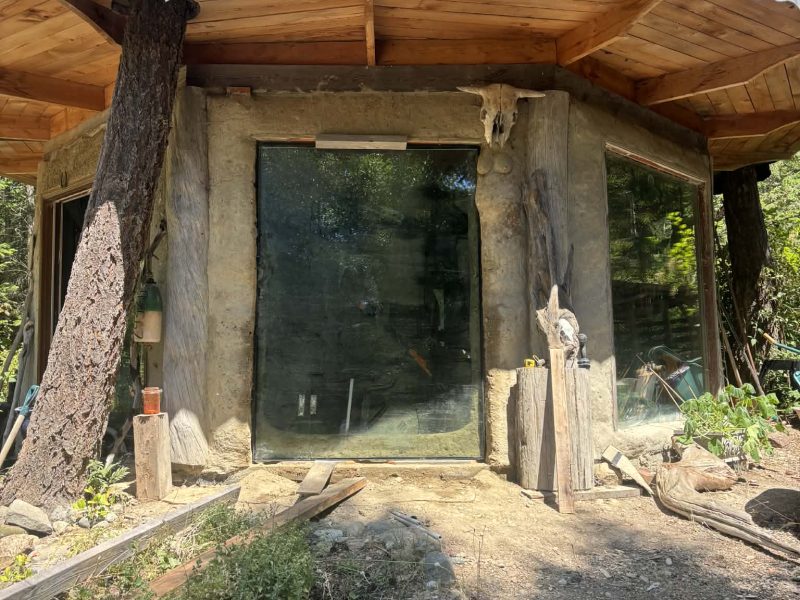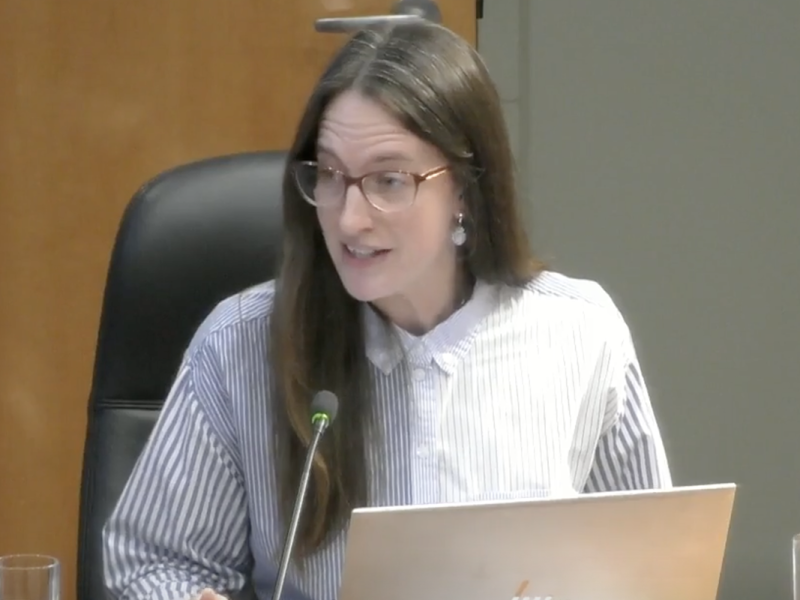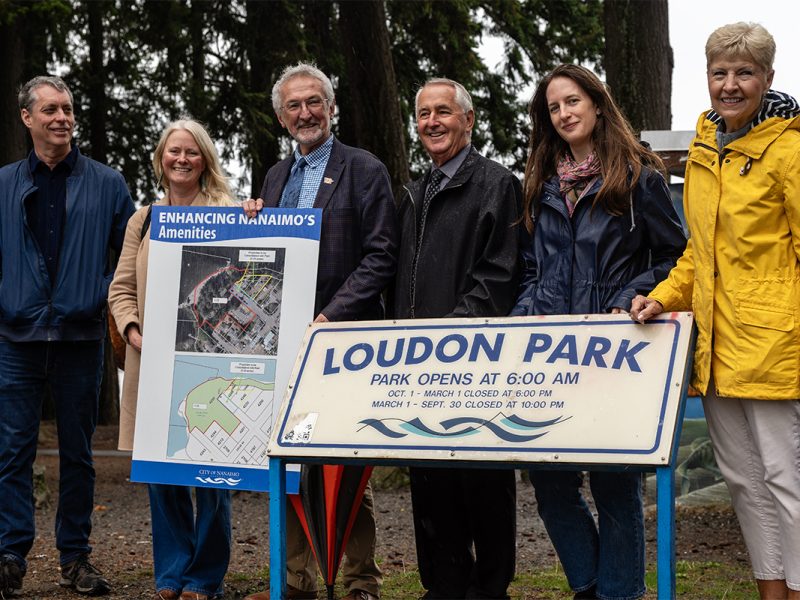
This community shout-out was originally shared in Nanaimo This Week, your weekly local newsletter. Sign up to be the first to read stories like these. Know someone that deserves a shout-out? Write to us.
Growing up with his brother Riley, who has autism, has shaped the way Brant Cartwright moves through his life.
“I advocate so much for inclusion and kindness because I’ve seen first-hand the impact that being inclusive can have on someone’s life,” Brant says. “My brother has been fortunate that the people in his life have embraced and loved him for who he is. In return, my brother has taught the people around him the importance of being patient, kind, silly, and understanding.”
Brant adds he has also seen the negative implications treating people the opposite way can have as well. “As a society, it’s important that we understand that everyone deserves equal treatment and equal opportunities regardless of their abilities.”
The second youngest of nine children in his family, he moved from northern Alberta to Nanaimo to continue his education degree at Vancouver Island University. His career ambitions originally were to obtain his master’s degree in special education to become a learning support teacher so he could work closely with students with disabilities.
“I found out that the majority of the work is behind a desk instead of one-on-one with students, so I decided to do some research and find out if my passion for inclusion and integrating people living with disabilities could be used somewhere else,” he says.
In his research, Brant realized there were not a lot of companies supporting and celebrating people living with developmental disabilities. However, one in five Canadians live with a disability of some kind, according to Statistics Canada. Brant’s findings motivated him to fill in the gaps.
“I came up with the idea of creating a clothing company that has inclusion at the core,” he explains, as a way to stitch diversity into the fabric of a company’s values that is visible to the public.
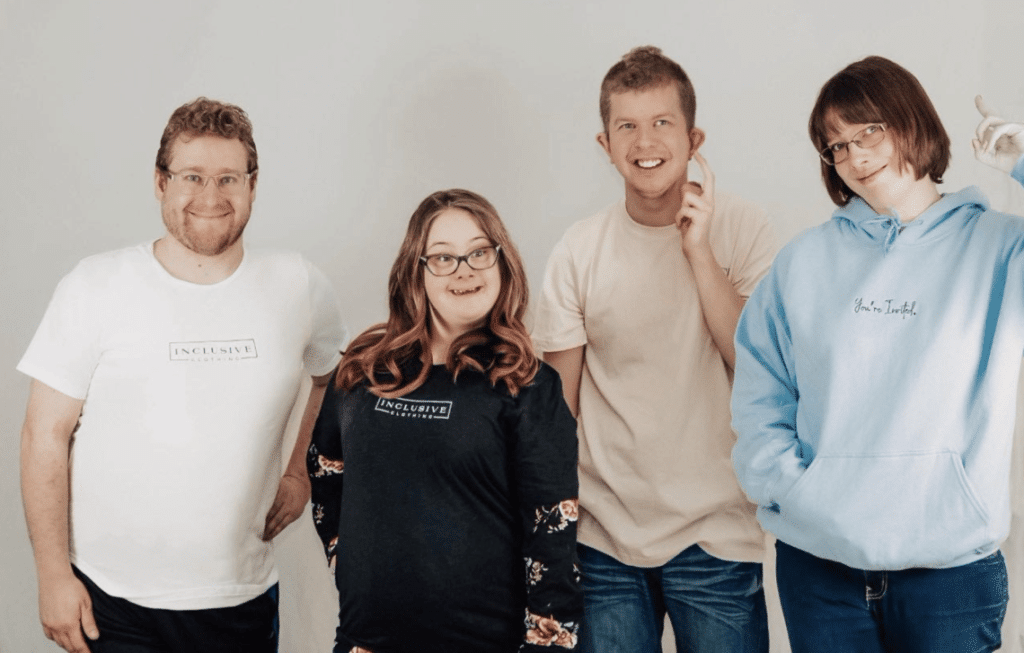
That value is clearly shown in every step forward the 24-year-old entrepreneur makes with his company, Inclusive Clothing. Although he doesn’t have experience working in the fashion industry, Brant explains that he has a lifetime of connection to people living with disabilities, and that experience has given him the passion and insight to make an adaptive clothing line for all body types. “Our clothing has tear-away tags, so it is sensory-friendly,” he explains. “We also sell sizes XS to 5XL to be inclusive of all body types.” A children’s line is coming soon.
On the company’s social media channels, Brant also introduces his audience to people living with disabilities, like Carter, who was diagnosed with autism at five years old. Though he sometimes struggles with eye contact and expressing his needs, “Carter is Carter,” his mom explains on a Facebook post. “He is brave and resilient.”

A portion of profits goes to various charities helping support people living with disabilities. Five per cent of proceeds currently are donated to the Children’s Ability Fund, a long-standing non-profit organization in Alberta focused on supporting the independence of children and adults living with disabilities.
His clothing is modelled by people living with disabilities and focuses on diversity. The idea of reflecting back real life through advertising has been widely adopted in more recent years. Companies such as Knotty Knickers have built their advertising platforms on showcasing models of varying body types and physical conditions.
Though people living with disabilities make up one of the largest groups systemically excluded from public dialogue, advertising can perpetuate erasure or misrepresentation, research shows. But the reverse is true — seeing ourselves reflected back to us helps develop a healthy sense of self, and furthermore, deepens our connection to the wider community, according to research on role modelling.
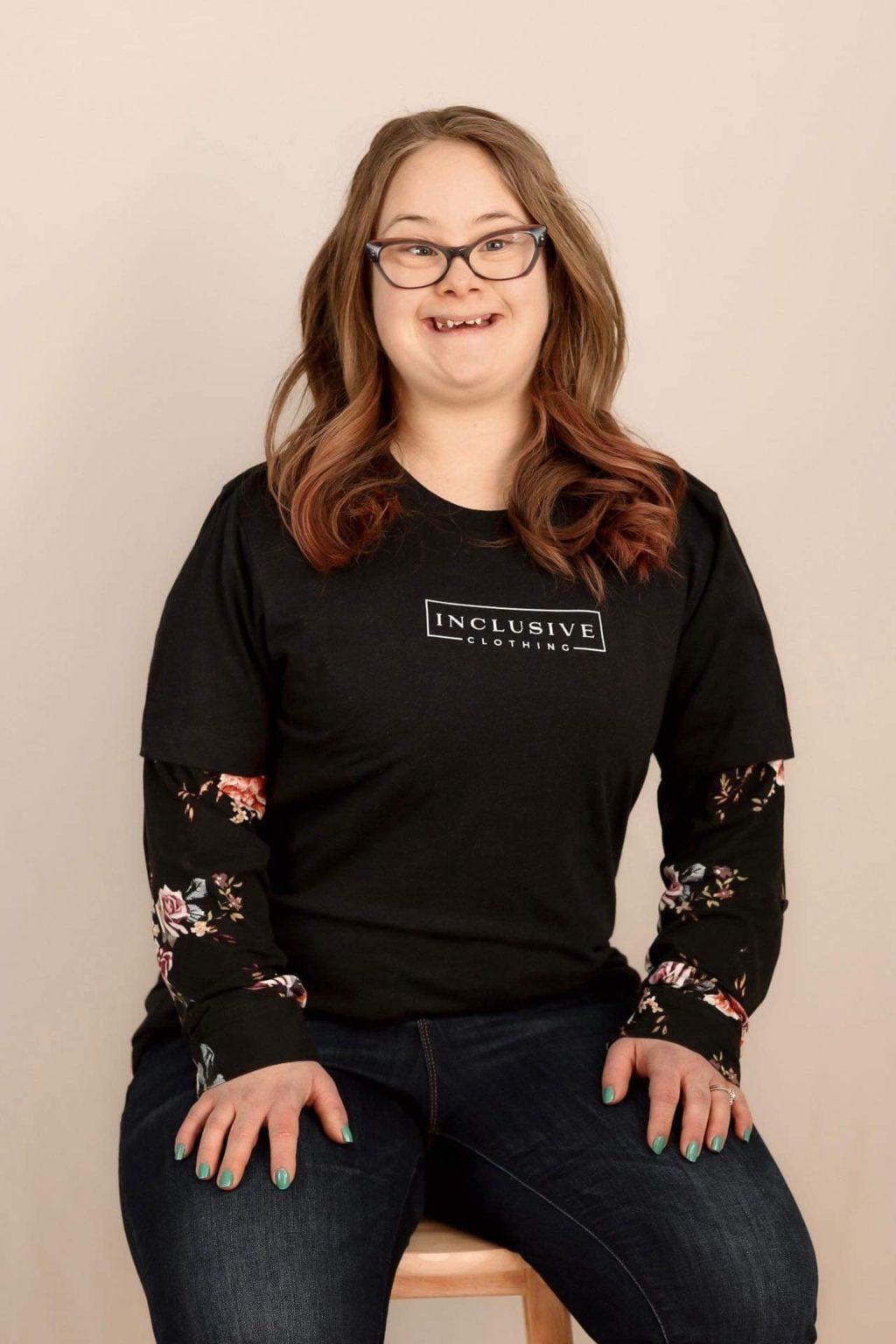
Following the 2020 rallies is support of Black lives and the confirmation of graves at the sites of former residential “schools” in 2021, more consumers are turning to brands that genuinely uplift systemically excluded communities.
Indigenous-owned brands like Section 35 and Decolonial Clothing create garments with slogans like “land back” and “you are medicine” as a way to uplift and connect. Now disability communities will have a new brand to rally behind.
Related: Locally made orange shirts support ‘children of the future and children of the past’
Currently, Brant sources his clothing from Bella + Canvas, a Los Angeles based clothing and print company. Brant’s long term goal is to open a storefront to make employment accessible for people with disabilities and build a clothing line with Canadian designers of fashionable, adaptive clothing wear. [end]

